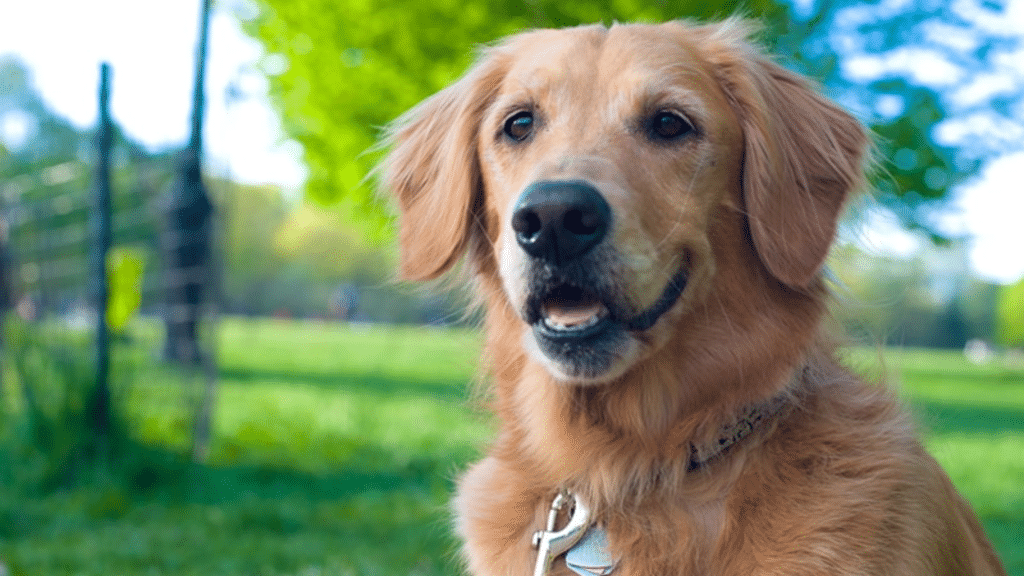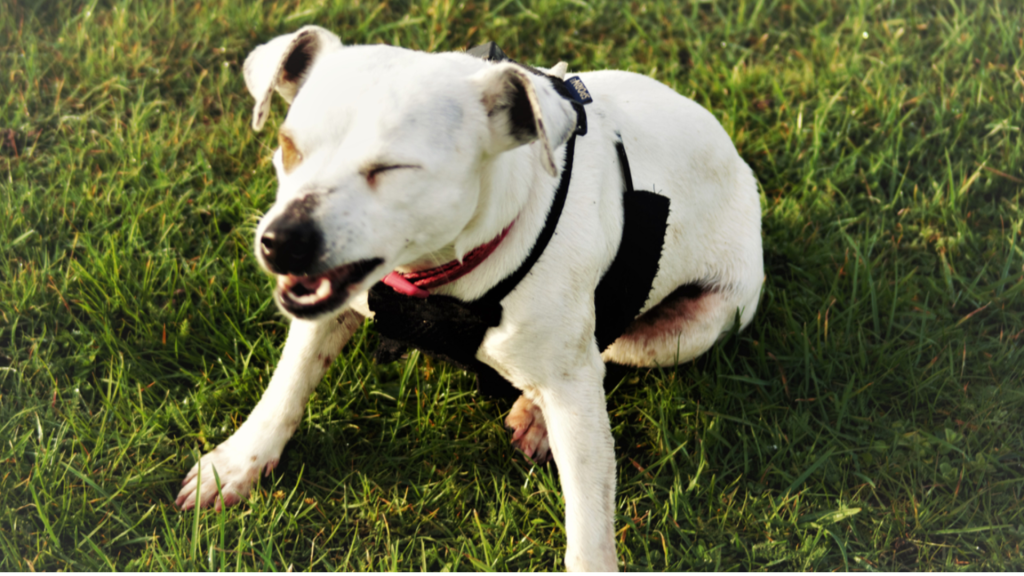Golden retriever owners often worry about how long their beloved companions will stay by their side. It’s natural to want as many years as possible with these loyal, loving dogs.
The truth is, understanding what affects a golden retriever’s lifespan can help extend those precious years together.
This blog will share practical insights about golden retriever life expectancy and proven tips to help dogs live healthier, longer lives.
Readers will learn about common health factors, nutrition strategies, and lifestyle choices that make a real difference in how long golden retrievers live.
A Brief History of the Golden Retriever
The golden retriever’s story began in the Scottish Highlands during the 1860s. Lord Tweedmouth wanted a dog that could retrieve waterfowl in Scotland’s harsh terrain and unpredictable weather.
He crossed a yellow retriever with a Tweed Water Spaniel, creating the foundation of today’s golden retriever.
These dogs were built for work. They needed stamina to swim in cold lakes and strength to carry heavy game birds. This working background shaped everything about them, their thick, water-resistant coat, and their strong swimming ability.
But what matters most for lifespan is that their breeding history also gave them certain physical traits that affect their health today. The same sturdy build that made them excellent hunting companions can sometimes lead to joint issues as they age.
Understanding this connection helps owners provide better care for their golden retrievers throughout their lives.
Physical Traits of the Golden Retriever

Golden Retrievers have a friendly, intelligent, and eager-to-please temperament, making them highly sociable, gentle, and loyal companions well-suited for families and various living situations.
| Characteristic | Description |
|---|---|
| Size | Medium to large breed |
| Height | Males: 23–24 in (58–61 cm); Females: 21.5–22.5 in (55–57 cm) |
| Weight | Males: 65–75 lbs (29–34 kg); Females: 55–65 lbs (25–29 kg) |
| Build | Sturdy, well-proportioned, muscular |
| Head | Broad skull, straight muzzle, well-defined stop |
| Eyes | Medium size, dark brown, friendly expression |
| Ears | Medium size, pendant-shaped, set slightly above eye level |
| Coat Type | Dense, water-repellent double coat; outer coat can be wavy or flat |
| Coat Color | All shades of golden, from light cream to dark gold |
| Tail | Thick at the base, carried level, or with a gentle upward curve |
| Feet | Round, well-arched “cat-like” feet |
How long do Golden Retrievers Live

The average Golden Retriever lifespan is typically 10 to 12 years.
However, some can live longer, around 13 to 15 years, especially if they carry certain beneficial genetic variants, such as the increased golden retriever life expectancy and possibly reduced cancer risk.
Several factors influence their lifespan:
- Genetics: Responsible breeding, especially screening for hereditary diseases like cancer and hip dysplasia, significantly impacts longevity. Golden Retrievers are prone to cancer, which is a leading cause of death, with a higher incidence in American lines compared to European ones.
- Diet and Nutrition: A balanced, high-quality diet helps maintain a healthy weight and prevents illnesses like obesity or diabetes.
- Exercise and Mental Stimulation: Daily physical activity and mental engagement keep them fit, reducing risks such as arthritis.
- Veterinary Care: Routine health checks, vaccinations, and preventive care contribute to longer, healthier lives.
- Environmental Factors: Research indicates that cancer rates and overall health can vary regionally, with European Golden Retrievers often showing lower cancer-related mortality than American ones. This suggests that environment and breeding practices may differ between American, British, and Canadian lines.
Common Health Issues That Affect Longevity

Common health issues significantly affecting the Golden Retriever lifespan include:
Cancer
This is the biggest threat to the golden retriever life expectancy. About 50% of American Golden Retrievers may die from cancer, especially hemangiosarcoma and lymphoma.
European populations tend to have lower cancer rates, highlighting genetic and environmental differences.
Hip and Elbow Dysplasia
These are genetic joint disorders that cause improper formation of hip or elbow joints, leading to pain, lameness, and mobility problems. They can severely affect comfort and quality of life, but symptoms can be managed with medication, lifestyle changes, or surgery.
Heart Conditions
Subvalvular aortic stenosis (SAS), a genetic heart defect causing narrowing below the aortic valve, forces the heart to work harder. SAS can lead to heart damage and even sudden death.
Symptoms include lethargy and exercise intolerance, and careful breeding is crucial to prevention.
Eye Problems
Common eye issues include cataracts and progressive retinal atrophy (PRA), which leads to vision loss and blindness over time. Pigmentary uveitis, an inherited eye disease developing later in life, may also lead to cataracts and glaucoma.
How to Keep a Golden Retriever Healthy at Every Stage
Golden retrievers require different care as they age. What works for a puppy won’t necessarily help a senior dog. Here’s how to support them through each life stage.
Puppy Years (0-2)

The first two years set the stage for a long, healthy life. Vaccinations protect puppies from deadly diseases like parvovirus and distemper.
Following the vet’s vaccination schedule is non-negotiable. Socialization matters just as much as shots.
Puppies who meet different people, animals, and situations become more confident adults. Less stress throughout life often means better health outcomes.
High-quality puppy food supports proper bone and muscle development. Overfeeding creates fat puppies who struggle with joint problems later. The goal is steady, controlled growth, not rapid weight gain.
Adult Years (3-7)

Adult golden retrievers need consistent routines. Daily exercise keeps their hearts strong and joints mobile.
But too much exercise can damage developing joints, especially in younger adults. Balanced nutrition becomes crucial during these years. Adult dogs need fewer calories than puppies but more protein to maintain muscle mass. Quality matters more than quantity with food choices.
Annual vet visits catch problems early. Blood work can reveal kidney or liver issues before symptoms appear.
Dental cleanings prevent infections that can spread to other organs.
Senior Years (8+)

Senior golden retrievers need extra support. Their joints get stiff, and they tire more easily.
Gentle exercise, like short walks or swimming, keeps them moving without strain. Joint supplements containing glucosamine often help with mobility.
Many senior dogs benefit from orthopedic beds that cushion sore joints during sleep.
Age-specific diets support changing needs. Senior formulas typically contain fewer calories but more fiber. Some older dogs need prescription diets to manage kidney or heart conditions.
Tips to Improve a Golden Retriever’s Lifespan
Small daily choices add up to big differences in how long golden retrievers live. These proven strategies help owners give their dogs the best shot at a long, healthy life.
Every golden retriever’s lifespan benefits when owners focus on the basics that truly matter.
- Feed high-quality protein sources: Look for real meat as the first ingredient, and avoid foods with excessive fillers or by-products that don’t support long-term health.
- Exercise regularly but smartly: Aim for 30-60 minutes daily through walks, swimming, or fetch, but avoid intense running on hard surfaces that can damage joints.
- Schedule preventive vet visits twice yearly: Annual checkups aren’t enough for early detection; senior dogs especially need more frequent monitoring of blood work and organ function.
- Maintain healthy weight ranges: Keep golden retrievers lean rather than chunky; even 5-10 extra pounds significantly increases risks for diabetes, heart disease, and joint problems.
- Provide mental stimulation daily: Use puzzle toys, training sessions, and new experiences to keep their minds sharp and reduce stress-related health issues.
- Prioritize dental care consistently: Brush teeth regularly and provide dental chews; poor oral health can lead to heart and kidney problems that shorten lifespan.
The Bottom Line
Golden retrievers bring joy for 10-12 years when owners make informed choices. The breed’s history explains their health patterns, but daily decisions shape the golden retriever’s lifespan.
Cancer remains the biggest threat, yet proper nutrition and exercise create strong defenses.
Every golden retriever deserves a full, healthy life. Start implementing these strategies today rather than waiting for problems to develop. Regular vet visits, quality food, and appropriate exercise aren’t just recommendations; they’re investments in more years together.
Are you ready to give your golden retriever the best possible life? Begin with one small change this week and build from there.









